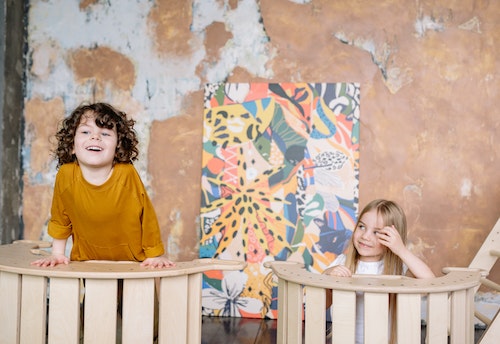The Myth of Speech Delay in Bilingual Children

Though a lot has been written about the cognitive benefits of bilingualism in early childhood, there is a common belief that being exposed to more than one language can also lead to a speech delay in bilingual children. Many people argue that children with bilingual parents often mix the two languages they hear at home when they are first learning to talk, which affects their communication abilities. However, research has demonstrated that this is not actually a speech delay, but simply a normal part of bilingualism that occurs to people who know more than one language, regardless of their age.
→Find a Native Tutor Now!←
Far from damaging children’s normal cognitive development in any way, bilingualism has been shown to improve cognitive development and problem-solving skills, while boosting creativity and, yes, linguistic abilities along the way. (More on this later!)

If we want to understand the causes of speech delay in bilingual children, then, we’ll have to delve deeper.
What is speech delay?
Speech delay is defined as a hold-up in the development of speech and language skills in young children. This can include delays in the development of expressive language skills (speaking) or receptive language skills (understanding). Speech delay can also refer to a child’s difficulty in producing specific sounds, such as consonants or vowels.
Could my child be showing signs of speech delay?
If you are a father or a mother yourself, you know that parents can get a bit anxious about the speech development of their children. But before assuming that your child is showing signs of speech delay, you should know when it is time to worry.
According to experts, most children are able to start speaking fluently by the time they are 3 years old. If a child is not speaking by this age, it may be a sign of speech delay. However, a few months delay is not always a reason to worry!
So, when is it advisable to resort to an expert? In general, if a child is not speaking at least 50 words by the age of 4, or if they are not speaking in full sentences by the age of 5, a consultation with a doctor or speech specialist is a good idea.
What are the real causes of speech delay?
The four main causes of speech delay are:
- Neurological problems: issues with the development or function of the brain, nerves, or muscles can cause speech delay.
- Hearing problems: if a child cannot hear well, they will have difficulty learning to speak.
- Anatomical problems: if a child has trouble using their tongue, lips, or other muscles needed for speech, they may have a hard time speaking.
- Functional problems: difficulty with thinking, processing, or memory skill may lead to speaking problems.
What is the role of bilingualism in the cognitive development of my child?
The cognitive effects of bilingualism in children are largely positive. A recent Canadian study found that bilingual children were better at solving problems involving conflicting information than monolingual children. This ability is known as cognitive flexibility, and it is considered an important ingredient for creative thinking.
Another recent study supported by the Dutch Ministry of Education, Culture and Science has found that bilingual children are more likely to come up with original ideas and to see problems from multiple perspectives, and that they are better at tasks that require mental plasticity, such as switching between different concepts or tasks.

But that’s not it. Bilingualism can also have social benefits, such as improved communication skills and increased cultural understanding. This is because learning a second language encourages children to appreciate different cultures, while providing a larger vocabulary to draw from, increasing understanding of different points of view.
In addition to the cognitive and social benefits of bilingualism, there are also linguistic benefits. Bilingualism can help children to learn additional languages more easily, and it can also improve reading skills in both languages. What’s more, as learning a second language improves the neural processing of verbal input, bilingual children will find it quite easy to learn additional languages.
To sum up, though speech delays are a common concern among parents of bilingual children, research has been consistent in showing that bilingualism does not cause this issue. In fact, bilingualism has many cognitive, social, and linguistic benefits that will enrich your child’s life.
If you are considering bilingualism for your child, there are many reasons to do so.
At Lovlan, we offer private lessons for your children that will allow them to reach their full potential and acquire essential skills that will accompany them for the rest of their lives.
Benefits of one-to-one instruction for children:
1) The ability to focus and pay attention: While some children may be able to sit in a classroom and listen to a teacher for an hour, others may find it difficult to focus on one thing for that length of time. A private language tutor can tailor the lesson to the child’s needs and keep them engaged for the entire session.
2) Greater opportunities to practice: In a traditional classroom setting, the teacher has to split their time between all the students. This means that each child only gets a limited amount of speaking time. With a private language tutor, the child can get as much speaking practice as they need.
3) More personalized feedback: In a large class, it can be difficult for the teacher to give each student the individual attention they need. A private language tutor, on the other hand, can give the child immediate feedback on their pronunciation and help them correct any mistakes.
→Find a Native Tutor Now!←
At Lovlan, we offer tailored courses for children of all ages to help them start learning a second language. Our main commitment to our clients is to provide personalized lessons designed to be fun and engaging and let every student dictate their own pace of learning.
Check our directory of native language tutors today and choose the best for you and your family!


